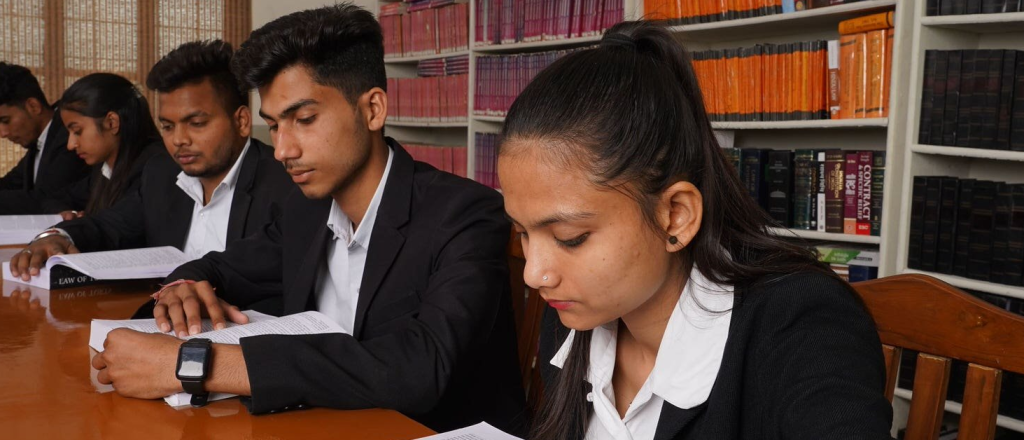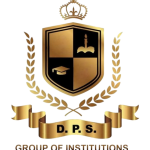About Course
DPS Group of Institutions offers a B.A. LL.B. (Bachelor of Arts and Bachelor of Laws) integrated program, designed to provide students with a solid grounding in both legal studies and the liberal arts. This 5-year program is tailored for students who want to pursue a career in law right after completing their higher secondary education.
Program Details
- Course Name: B.A. LL.B. (Bachelor of Arts and Bachelor of Laws)
- Duration: 5 years (Integrated course)
- Eligibility: 10+2 or equivalent from a recognized board with a minimum qualifying percentage (as specified by the institution).
Course Structure
The B.A. LL.B. program is structured over 10 semesters, combining subjects from the arts stream with core law subjects. This approach ensures that students receive a holistic education, with a focus on understanding society and the law.
Core Areas of Study
- Arts Subjects (first few semesters):
- Political Science
- Sociology
- Economics
- History
- English
- Public Administration
- Law Subjects:
- Constitutional Law
- Criminal Law
- Civil Law
- Corporate Law
- Family Law
- Intellectual Property Law
- Labour Law
- Environmental Law
- Jurisprudence
- Administrative Law
- Law of Contracts
- Human Rights Law
- Interdisciplinary Approach: The course blends humanities and social sciences with legal education to give students a comprehensive understanding of how society functions and the role of law in shaping it.
Practical Training and Exposure
- Moot Courts: Students actively participate in moot courts to practice legal arguments and develop their courtroom skills.
- Internships: Students are required to undertake internships at law firms, corporate legal departments, NGOs, or legal aid centers, providing them with real-world experience in legal practice.
- Court Visits: Frequent visits to local, district, and higher courts help students understand courtroom procedures, case presentations, and legal arguments.
- Legal Aid Clinics: The institution encourages participation in legal aid clinics to offer free legal assistance to the underprivileged, instilling a sense of social responsibility.
Faculty and Learning Approach
- Expert Legal Faculty: The program is taught by experienced legal professionals, professors, and guest lecturers who bring practical insights from the legal field.
- Innovative Pedagogy: The course emphasizes case study analysis, debates, group discussions, and legal workshops to encourage critical thinking and practical application of legal principles.
- Seminars and Workshops: Regular seminars, workshops, and guest lectures by renowned legal professionals provide insights into current legal practices and developments.
Facilities and Resources
- Moot Court Facilities: The institution provides dedicated moot court rooms where students can practice legal proceedings and arguments.
- Library: The library is equipped with a vast collection of legal texts, reference materials, law journals, and access to online legal databases like SCC Online, Manupatra, and others.
- Research Centers: Students are encouraged to engage in legal research and contribute to publications and journals.
Admission Process
- Eligibility: Candidates must have completed 10+2 from a recognized board with a minimum qualifying percentage.
- Entrance Exam: Admission may be based on the performance in a law entrance examination (either institutional, state-level, or national-level), followed by a personal interview and counseling session.
Career Opportunities
Graduates of the B.A. LL.B. program have various career paths to explore in the legal profession:
- Litigation: Graduates can practice law in courts as advocates, representing clients in civil or criminal cases.
- Corporate Sector: Legal roles in corporate houses, including compliance, mergers and acquisitions, intellectual property law, and contract law.
- Judicial Services: Graduates can appear for Judicial Services Examinations to join the judiciary as judges.
- Legal Consultancy: Working as legal consultants or advisors for businesses, government organizations, or NGOs.
- Public Prosecutor: Serving as a prosecutor, representing the state in criminal cases.
- Academia and Research: Graduates may also pursue careers in legal research, teaching, or publishing within the academic field.
- Civil Services: Many law graduates opt to appear for civil service examinations and take up administrative roles in the government.
Higher Education and Specialization
- LL.M. (Master of Laws): Specialization in areas like Corporate Law, International Law, Criminal Law, or Constitutional Law.
- Judicial Services: Graduates can appear for the Judicial Services Examination to pursue a career in the judiciary.
- Ph.D. in Law: For those interested in research and academia, pursuing a Ph.D. in Law is a potential path.
The B.A. LL.B. program at DPS Group of Institutions offers a comprehensive, interdisciplinary education that combines the humanities and law, preparing students for a successful career in legal practice or further specialization. With a robust curriculum, practical training, and a focus on legal ethics and social justice, the program equips students with the skills and knowledge needed to excel in the legal field.



